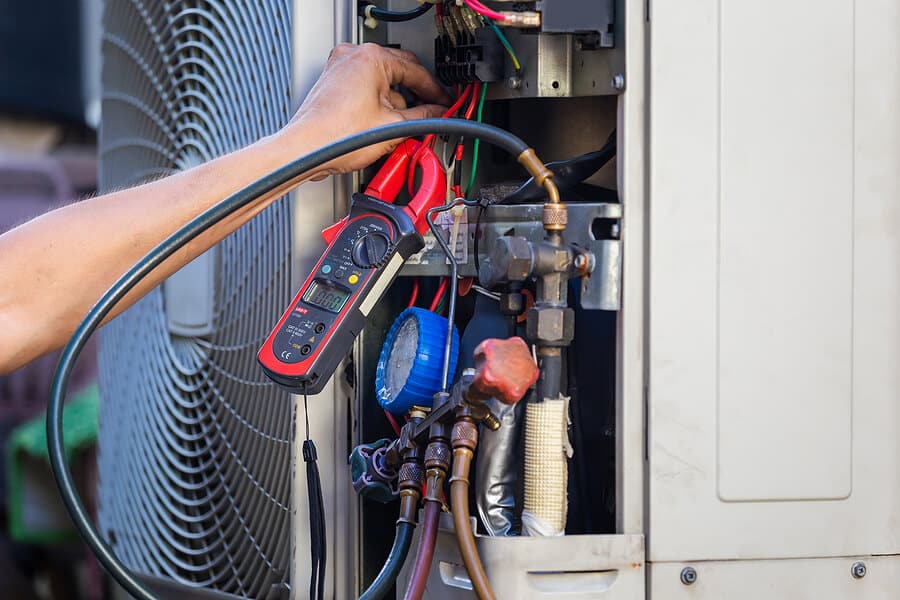How to Select the Right A/c System for Your Requirements
Selecting the ideal Heating and cooling system is a critical choice that requires careful consideration of different variables. The myriad of system kinds offered can complicate this process, leading one to ask yourself which path inevitably leads to ideal convenience and efficiency.
Evaluate Your Home Size
Assessing your home size is a crucial very first step in picking the suitable heating and cooling system. The size of your home directly affects the cooling and heating ability needed for effective climate control. A cooling and heating system that is too small will battle to keep comfy temperatures, bring about boosted energy usage and endure the system. Conversely, an oversized system can cause brief biking, insufficient humidity control, and ineffective operation.
To precisely analyze your home size, gauge the square video footage of each space, considering aspects such as ceiling height and the format. In addition, think about the insulation quality and the number of windows, as these elements impact thermal performance. Houses with open flooring plans may need different system configurations contrasted to those with numerous split areas.
Using the Guidebook J tons calculation method can provide a more specific price quote of your a/c requires. This method accounts for numerous elements, consisting of regional climate, solar gain, and occupancy patterns. By thoroughly reviewing these elements, you can guarantee that your selected HVAC system is appropriately sized, causing improved convenience, power effectiveness, and durability of the devices.
Determine Your Spending Plan
Determining your spending plan is a critical action in the HVAC system selection process, as it establishes the criteria for your choices - DMAKS HVAC. A heating and cooling system is a significant financial investment, and understanding your economic restrictions will certainly help narrow down choices that fit within your methods
Begin by analyzing not only the first acquisition rate but also setup expenses, which can vary dramatically depending on the intricacy of the job. Additionally, consider continuous expenses such as maintenance, repair services, and power consumption. A system may show up budget friendly originally but can cause greater prices gradually if it is less effective.
It is advisable to allocate a contingency fund for unexpected costs that might occur during setup or first system adjustments (DMAKS HVAC). In addition, check out financing options or discounts that might be available, as these can reduce the worry of ahead of time expenses
Inevitably, having a clear budget plan permits you to engage with a/c professionals more efficiently, guaranteeing you get customized recommendations that straightens with your monetary objectives and home requirements. By being this post thorough about your spending plan, you can make informed decisions that enhance comfort without jeopardizing financial stability.
Evaluate Energy Effectiveness
Power effectiveness plays an essential role in the general performance and cost-effectiveness of your Cooling and heating system. Look for systems with a high Seasonal Power Effectiveness Proportion (SEER) for cooling and a high Annual Gas Utilization Effectiveness (AFUE) rating for home heating.
Furthermore, consider the Energy Celebrity certification, which indicates that the system fulfills strict effectiveness guidelines established by the Environmental Defense Agency. Spending in an Energy Star-rated HVAC system can cause significant savings with time, specifically in areas with extreme temperature variations.
An additional factor to review is the system's size and capacity. An oversized or small device can cause ineffectiveness and increased power costs. DMAKS HVAC. Correct sizing, typically figured out with a Hands-on J tons calculation, guarantees that the system runs at optimal performance


Take Into Consideration Climate and Environment
When choosing a cooling and view heating system, it is crucial to consider the neighborhood climate and ecological problems, as these factors significantly influence the system's performance and effectiveness. Various areas experience differing temperature level extremes, humidity degrees, and seasonal changes, all of which effect home heating and cooling down needs.

In addition, local environmental aspects, such as air quality and potential irritants, ought to notify your selection. Equipments furnished with innovative filtration innovations can help minimize toxins and supply cleaner air. Furthermore, take into consideration the power resources available in your area-- some a/c systems are much more efficient when powered by natural gas or renewable resource resources.
Ultimately, straightening your cooling and heating system option with your local climate and ecological considerations will certainly bring about improved comfort, improved efficiency, and reduced energy costs.
Explore System Kind and Functions
As home owners look for to enhance convenience and effectiveness, exploring the numerous types of cooling and heating systems and their distinct features ends up being important. The key kinds of HVAC systems include central air, heatpump, ductless mini-split systems, and heaters. Each system supplies distinct advantages customized to different needs and choices.
Air conditioning systems offer uniform cooling throughout a home, making them ideal for larger spaces. Warm pumps work as both heating and cooling down remedies, making use of electrical power to move warm, which can lead to reduced power costs. Ductless mini-split systems are becoming significantly popular due to their adaptability and simplicity of setup, permitting home owners to manage the temperature in individual rooms without extensive ductwork.

Verdict
To conclude, selecting the proper a/c system requires careful consideration of different factors, consisting of home dimension, budget plan restraints, energy performance, local environment, and available system types. A complete assessment of these elements makes sure optimal comfort and cost-effectiveness. By following a structured approach, property owners can make educated decisions that align with their particular demands and preferences, ultimately resulting in boosted interior air high quality and power financial savings.